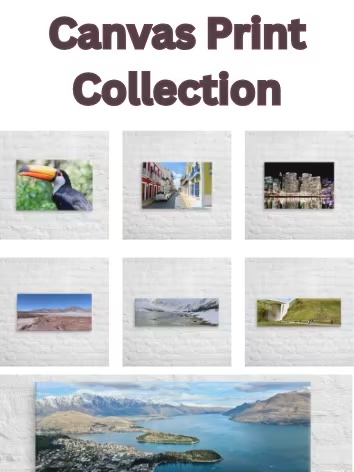Visiting the Cenotes Near Cancun

What is a Cenote?
This page is dedicated to visiting the cenotes near Cancun, Mexico. There are hundreds of cenotes in the area. In this section, I highlight my visit to three different cenotes.
Cenotes are sinkholes that can be found in Mexico’s Yucatán Peninsula, as well as through other parts of Mexico, Central America, and the Caribbean. A cenote is a sinkhole that is created when limestone bedrock collapses. Groundwater is then exposed, creating a deep natural pool. Since the groundwater is continually flowing through underground rivers, the water is constantly replaced and not stagnant.
Cenotes were especially important to the Mayan Empire. The Mayans used cenotes for everything from freshwater to religious ceremonies. The Temple of Kukulcan, the largest temple at Chichen Itza, was built on top of a cenote. The cenote helps give the temple its amazing acoustics.
Some cenotes are so deep that scuba gear is needed to reach the bottom. Others are shallow enough for people to walk with their feet on the floor of the cenote.

Visiting the Cenotes Near Cancun - Table of Contents
Disclaimer: Buzzin’ Around the World strives to provide accurate and up-to-date information based on our research at the time of publication. We respect all applicable laws and fair use principles. If you believe any information is incorrect or violates regulations, please contact us at buzzinaroundtheworld@gmail.com.
Affiliate Links and Reviews: We use affiliate links to generate income and may receive a commission at no additional cost to you when you use our links. We strive for honest and transparent reviews, even for products which we receive compensation.
Content Creation: Our content is based on our own travel experiences. All photos are our own unless otherwise stated. We sometimes utilize AI tools to assist with tasks like generating titles, summarizing content, and improving organization.
For more information: For more information, please click HERE to visit our private policy page. We can be reached at buzzinaroundtheworld@gmail.com.
Visiting the Cenotes of Canamayte Eco Park
The first two cenotes that I visited were part of the Canamayte Eco Park. I visited the Eco Park on the way back from my tour of the Mayan Ruins of Tulum. In addition to being able to swim in the two cenotes, Canamayte Eco Park has hiking trails, a restaurant, a gift shop, and a chance to speak with local Mayans. If you choose to speak with a Mayan, be sure to greet them by saying “Ma’lob Kin,” which means “good day.”
Admission to the Eco Park costs MX$300 (USD$15). The admission was separate from the cost of my tour and had to be paid to the guide upon boarding the bus.

With admission to the Canamayte Eco Park, guests receive access to a locker and the changing room. The lockers are big enough for a small backpack, shoes, camera, and clothes. The lockers are next to the restaurant and very secure. I left my computer and camera in them without any worry.
Before going into the cenote, visitors are expected to take a shower to wash any foreign substances off their bodies. The showers are located by the changing room and can only be described as “refreshing.”


Before entering the cenote, all visitors must put on a life jacket. Once you enter the cenote, you will realize that the life jackets are necessary. At 6 foot 5, there were very few places where I could stand without the water being over my head.
If you order food from the restaurant, you should place your order before entering the cenote. Your food will be ready when you are done swimming.


Once you are done swimming, I highly recommend walking the paths through the subtropical forest. The paths are well marked and fairly flat. Near the main path there is a gift shop that is run by local Mayans. I suggest buying something made out of obsidian, which is a local lava stone. Obsidian turns a golden-green when exposed to the sun. Once back in the shade, it reverts to black.


Cenote Mariposa
Cenote Mariposa is the larger of the two cenotes at the Eco Park. The cenote is located within sight of the changing rooms and lockers. When you enter the cenote, be careful, as the rocks are slippery and sharp. I suggest stepping into the water and then immediately beginning to swim. The water is deep enough that you will not hurt your feet as you begin swimming. If you choose to walk, you will likely slip and hurt yourself. One suggestion is to bring water shoes as they will protect your feet from the jagged rocks.
Once in the water, swim to the back and sit on one of the swings. The swings are partially submerged in the water, and getting on them can be a bit of a challenge, however it is well worth it.
There is also a cave that you can swim into. Be careful. As I swam into the cave, a bat flew out, almost hitting my head.
The water in the cenote was cool but refreshing. I was surprised by how much I enjoyed swimming in the cenote. After a day of touring the Mayan Ruins of Tulum, a swim in the cenote was exactly what I needed.




I brought a waterproof camera with me into the cenote. I do not recommend bringing any camera in that is not waterproof. Even if you are careful, you will end up slipping and getting the camera wet.


Cenote Chen Há
When I exited Cenote Mariposa, I realized that I had hit my toe, and it was bleeding. As I did not want to swim with a bandaged toe, I did not go inside Cenote Chen Há. Cenote Chen Há is about a ten-minute walk from the changing room/lockers area. This cenote is covered by rocks and requires the use of overhead and underwater lighting. As you go down the steps into the cenote, you will see two batteries. There is a switch near the batteries that turn on the lights.
The members of my tour group said that Cenote Chen Há was much deeper than Cenote Mariposa. They also explained that it was interesting to look up at the stalagmites that were still actively forming.
While I did not go into Cenote Chen Há, I was able to walk down to the entrance and take pictures. When I approached the entrance to the cenote, I could feel a plume of warm air. If you visit during a cold day, Cenote Chen Há would definitely be warmer than Cenote Mariposa.




After I took a few pictures of Cenote Chen Há, I returned to the locker area to reclaim my belongings. I then changed my clothes and ate a delicious meal of chicken enchiladas. Throughout our visit, we were the only tour group visiting the Eco Park. It was great to have the cenotes to ourselves. The next cenote I visited would be much more crowded.
Cenote Saamal
The third cenote that I visited was Cenote Saamal. Cenote Saamal was the final stop of my tour of the Mayan Ruins of Chichen Itza. After spending the morning visiting Chichen Itza, we stopped at Cenote Saamal on the way back to Cancun. Cenote Saamal was a much larger operation than the other cenotes that I visited. During my visit, many other tour groups were swimming in Cenote Saamal. It was so crowded that there was a wait for the changing rooms and to get a locker.
There are a few minor costs with Cenote Saamal. To rent a locker and a life jacket, there is a change of MX$20 (USD$1) for each. Life jackets are required to enter the cenote, so unless you bring your own, you will need to rent one.

Be careful walking down the steps. It is quite slippery, and the steps are fairly steep. Make sure you hold onto the handrail and yield to people near the turns.

Cenote Saamal is over 15 feet deep at the entrance. Either use the steps or jump into the water. While the water will feel chilly at first, you will quickly warm up.

Once in the cenote, be sure to visit the waterfall for some unique photos. Once again, make sure your camera is waterproof, as there will be no way to keep a standard camera dry.


Since I had my waterproof camera, I thought it would be worth trying out the underwater option. Below are pictures of a ledge near the back of the cenote and a school of catfish. Cenotes are fed by underground rivers and are commonly full of fish.





Cenote Saamal was a much different experience than my visit to Cenote Mariposa and Cenote Chen Há. I believe that each cenote is a unique experience, and I look forward to visiting more during any future trips to the Yucatán.
Tours from Cancun that Visit a Cenote
One of the best ways to visit a cenote is to take a tour. Typically, a cenote visit is part of a tour package. Below, I have linked tour options of Coba, Tulum, and Chichen Itza. All of these tours make a stop at one of the region’s cenotes. I also linked a few adventure tours that include snorkeling and ziplining. Please note that as an affiliate of Viator, I will receive a small commission if you book using one of my links. This commission is at no additional cost to you.
Prices are accurate as of April 2023.
 Coba and Tulum Ruins, Playa del Carmen and Cenote Tour from Cancun - $125.00 Visit two of the most important Maya archaeological sites on this full-day tour: Coba and Tulum. Admire the backdrop of the Caribbean Sea while exploring the temples and pyramids of Tulum with a certified guide, then head to Coba to climb to the top of Nohoch Muul — the tallest pyramid on the Yucatán Peninsula. In the afternoon, take a swim in a 'cenote' (underground gave), sit down for a traditional Mexican lunch, and explore the city of Playa del Carmen. Round-trip transport is included. |
 Chichen Itza and Cenote Amazing Tour Plus from Cancun - $77.00 The Archaeological zone of Chichén Itzá is located 90 minutes far from Merida Yucatán, this places called a World Heritage site by UNESCO, It was one of the most representative ceremonial centers of this culture. |
 Half-Day Sea Turtle and Cenote Snorkeling Tour from Cancun & Riviera Maya - $89.00 This incredible tour offers the experience of snorkelling with sea turtles in their natural habitat, with opportunities to see rays and brightly coloured tropical fish at the coral reef, take a guided trail into the sub-tropical forest and visit amazing underground worlds with mysterious cenotes, marvel, snorkel and swim at the thousands of spectacular stalagmites and stalactites that surround you at every turn |
 4X1 Adventure: Coba, Tulum, Cenote and Playa del Carmen from Cancun - $69.30 On this tour you will visit four incredible places, two archaeological sites. Tulum that faces the Caribbean Sea and Coba with the amazing Nohoch Mul, the tallest temple in the Yucatan Peninsula. From the top, you will have stunning views of the jungle. You will also visit Playa del Carmen and live the experience to swin in a cenote. |
 Jungle Buggy Tour from Playa del Carmen Including Cenote Swim - $90.00 Enjoy a 3-hour adventure tour in the heart of the Riviera Maya. Have a thrilling and unforgettable experience as you drive a CAN AM buggy and explore the Mayan jungle. Along with your professional guide, you will discover the local fauna and flora and the hidden treasures of the subtropical forest. |
 Dos Ojos Cenote Private Tour with Mayan lunch - $150.77 Enjoy a unique and exclusive private snorkeling tour to the famous Dos Ojos cenote, with private experimented certified snorkeling guide. With lunch at a local Mayan restaurant. Early departure to avoid the crowds. |
 2-Tank Cenote Certified Dive in Tulum - $174.36 Enjoy two cenote dives in the Riviera Maya!. Your tour includes transportation from the shop, equipment, snacks and refreshments, plus a professional guide. |
Affiliate Partner of the Month – Fourthwall
Fourthwall powers our brand-new Buzzin’ Around the World Merch Shop. Pick up a tee, hoodie, or sticker. All profits will help me continue to run this site and deliver great content!
Buzzin Around the World's Merch Shop
Want to Launch Your Own Merch Line?
Scroll to the bottom of our Fourthwall page and tap “Start Your Own Store.” That’s a referral link—if you sign up, Fourthwall rewards me with store credit I can use to buy more gear (at no extra cost to you). We only recommend tools we use and love.
Earn $200 in Travel Rewards with the Capital One VentureOne Rewards Card
The Capital One VentureOne Rewards Card is one of the few rewards cards that does not charge an annual fee. Cardholders can earn 1.25 points for every dollar spent while enjoying 0% APR for 15 months.
Currently, Capital One is offering a signup bonus of 20,000 points (worth $200 in travel rewards) when the cardholder spends $500 in the first three months. If you are interested in this card, I would appreciate it if you would sign up with the link below, as I earn a referral bonus of 10,000 points. Those points are worth $100 in travel rewards and will help me continue to bring great content to Buzzin’ Around the World.
Once again, the Capital One VentureOne card is one of the few reward cards without an annual fee and is the perfect card for someone who is just starting to get into the travel points game.
Related Content
Share this:
- Click to share on X (Opens in new window) X
- Click to share on Facebook (Opens in new window) Facebook
- Click to share on LinkedIn (Opens in new window) LinkedIn
- Click to share on Pinterest (Opens in new window) Pinterest
- Click to share on Tumblr (Opens in new window) Tumblr
- Click to share on WhatsApp (Opens in new window) WhatsApp
- Click to share on Reddit (Opens in new window) Reddit
- Click to print (Opens in new window) Print








